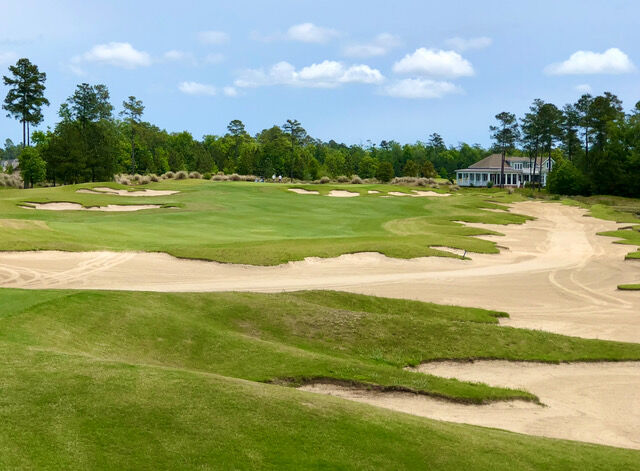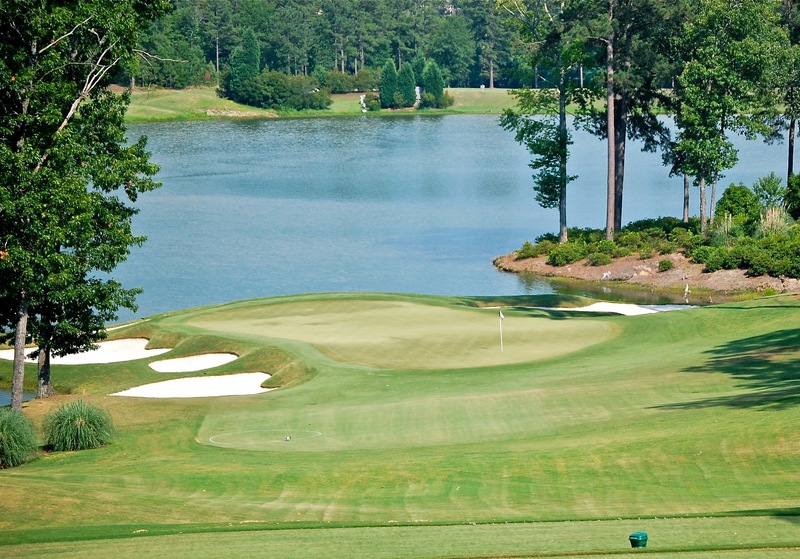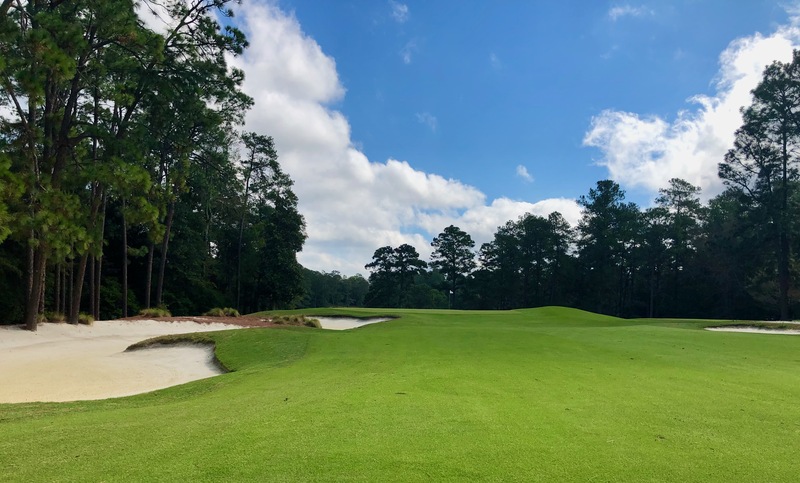Wilmington, NC, is known by one traditional nickname – the Port City for its navigable river – and by a few cinematic others, including Filmington, Wilmywood and Hollywood East, because of its conducive background for numerous Hollywood movies. Those films number more than 25 and cover the entire range of genres…from the serious and creepy Blue Velvet to the action-packed Iron Man 3 to the inspirationally weepy A Walk to Remember, based on the Nicholas Sparks novel. (Sparks is a native of North Carolina.) Wilmington is so indigenous to movie making settings that a site devoted to Wilmington-made movies mistakenly credits the city for hosting the filming of Dirty Dancing, which was actually shot in Roanoke, VA and on Lake Lure, a good four hours away.
Golf home seekers will find in Wilmington a town that is both historic and modern, with enough to do that you will feel like a tourist one day and a longtime resident the next. It is a university town, with a large branch of the University of North Carolina system located in town. That means plenty of opportunities for continuing education, concerts and bigtime collegiate sports.
Producers planning the next Caddyshack or Tin Cup would do well to select one of the Wilmington area’s fine golf courses as a setting. But such “stardom” comes with a price, with homes listed under $400,000 – the upper limit for this series of explorations – hard to find. Indeed, the two golf communities inside the city limits of Wilmington – Porter’s Neck and Landfall – show lowest home prices at $693,000 and $799,000, respectively. But fear not, there are some way more reasonably priced options just outside the city limits. Here are some of them…
Brunswick Forest, Leland, NC
When Brunswick Forest opened in the mid 2000s, its developers decided to keep prices low by building early homes on small lots. The created a rather cramped look but certainly more independence than attached condo living. The sharply priced single-family homes were an instant success, and the semi-private Cape Fear National golf course, designed by local boy Tim Cate, just added to the then-new community’s allure.
During and after the 2008 recession, Brunswick was one of the few golf communities that saw its sales rates continue to rise. Today, some neighborhoods in the community have much more breathing space and, naturally, higher relative prices. But Brunswick Forest is still a fine choice for those looking for a golfing lifestyle with flexibility. (The golf course offers both membership and pay-as-you-go play.)
Brunswick Forest features three outdoor pools, one indoor pool, Fitness & Wellness Center, two cardio/weight rooms, tennis courts, basketball and pickleball courts, Hammock Lake, walking trails, parks, playground, dog park and meeting rooms. In keeping with its original orientation toward low prices, I note that there are five homes for sale in Brunswick Forest under the magical price of $400,000 (priced from $340K to $390K). The highest priced house in that group, features 3 bedroom and 2 baths and total space of just over 1,600 square feet. A screened-in porch with paver stones is just outside the dining area and, for serious cooks, the house features natural gas.
Magnolia Greens, Leland, NC
Magnolia Greens and Brunswick Forest fought it out in the mid 2000s to capture clients looking for single-family homes priced from the high $200s. Those were the days. Today, the only sub-$400,000 homes available in Magnolia Greens are townhomes, with two of those priced at $315,000 and $365,000. The more expensive of the two features 3 bedrooms and 2 baths, one more bedroom than the lower-priced model. The unit backs up to the 3rd hole on the Tom Jackson designed 18-hole layout.
Membership in the golf club, which is owned by the Heritage Golf Group. is reasonable and offers members access to Heritage’s 45 other golf courses nationwide.
Magnolia Greens provides its residents with two outdoor pools, an indoor pool, a clubhouse, a fitness center, tennis and pickleball courts and a picnic area. Blossom Restaurant, located within the community, serves breakfast, lunch, and dinner.
Castle Bay, Hampstead, NC
Hampstead is less than a half hour drive north from center city Wilmington. After I visited the community more than a decade ago, and played its Scottish style golf course, I wrote: “The Castle Bay course looks gentle enough, but when the wind blows, it is anything but. Water on the course is not exactly the Firth of Forth, but hook or slice one into the wind, and you will be just as wet. Castle Bay is a fine links-type layout with access for all and, if you are in the Wilmington area, you should give it a go.”
I could find only two homes currently for sale in Castle Bay, one priced just above $400,000, and one listed at $369,000. The latter house features three bedrooms and two baths and is sited beside the 17th hole with views across a pond. The only quibbles I had with the community was the presence of high-tension wires around the golf course, and homes were packed fairly tightly together.


























